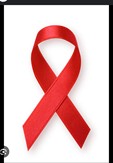In The Gambia, over 26,000 people live with HIV, quietly navigating a life filled with challenges most can’t see. Though the virus is treatable, stigma and social exclusion still run deep keeping many silent and fearful. But a few courageous individuals are breaking that silence, sharing their stories to spark change, fight misinformation, and demand support.
In this special report, The Point speaks to three people living with HIV, whose voices shine a light on the urgent need for expanded food aid, medical counseling, financial assistance, and protection from discrimination.
‘I don’t know how I got it but stigma is my biggest burden’
For one man, the journey began with painful lumps under his arms and unexplained weight loss. A medically trained friend suggested an HIV test. But fear held him back for months. When he finally went to the Medical Research Council (MRC) for testing, the result was positive.
“I was devastated. I thought about my children and their mother. It took me years to tell her,” he admitted. Eventually, he opened up to his siblings who offered love and support. But beyond his family, he still hides his status.
“I can’t tell my friends or colleagues. People assume you’re promiscuous or irresponsible, which isn’t true. I don’t even know how I got infected,” he explained his nightmare.
He is on treatment now, but hunger is a major challenge. “The drugs are powerful. They make you very hungry. And without food, people skip their doses. That’s dangerous,” he says.
His appeal is simple: bring back the nutrition and counseling programs that once supported people living with HIV. “Treatment alone is not enough. We need food, care, and understanding,” he appeals.
Another patient: ‘I lost a child to the stress of my diagnosis but I didn’t lose hope’
Another, a woman, found out she was HIV positive in 2005 during a routine antenatal check-up at Brikama Hospital. The shock was unbearable. “I stopped eating. I was so stressed that I lost the baby,” she narrates.
When she became pregnant again and tested positive a second time, she chose to accept her status and register for treatment. Today, she is a thriving counselor and president of a support group, helping others find hope and strength.
“I live like anyone else. I eat what I want. I work. If I didn’t tell you I had HIV, you wouldn’t know,” she points out.
But she is worried about others who feel too ashamed to seek help. “At the hospital, people can see where we go to collect our medicine. Then they point fingers. That kind of exposure drives people away from treatment.”
She also raises concerns about how women are treated when they test positive during pregnancy. “Many men accuse us of infidelity, even when they’re infected too. We need to stop blaming and start supporting each other,” she cautions, calling for the restoration of Global Fund transport and livelihood support, saying many patients now struggle to attend appointments due to financial constraints.
Another female patient: ‘I Was Born With HIV But I’m Still Standing’
One woman, who claims she inherited the virus from her parents, says: “I was born with HIV. I’ve lost four of my eight children. The other four are healthy. I thank God every day that I’m still alive.”
She is now stable, being on medication, but food insecurity remains a heavy burden. “The medicine makes you hungry almost immediately. If you don’t have food, how can you stay healthy?” she reasons.
She called on the government to reintroduce food packages and financial aid, especially for women and young people. “Stigma is still everywhere. People fear going to the hospital because of the shame. We need more education in communities to break this cycle,” she appeals.
The National Response: ‘Knowing your status is the first step’
Mama Drammeh, Country Coordinator of the Gambia Network of AIDS Support Societies (GAMNAS), stressed that the fight begins with awareness. “Everyone should know their HIV status. Testing is free, and treatment is available,” she proclaims.
Drammeh confirmed that The Gambia has ART centres across the country, from Banjul to Fatoto. However, places like Brikama, with its dense population and border connections to Casamance, continue to record the highest HIV rates in the country.
“We must strengthen collaboration between government and NGOs like NAS, ActionAid, and GAMNAS to address this,” she said. “People are dying not just from the virus, but from the silence and shame that surrounds it.”
Drammeh echoes calls for improved privacy, revived nutrition programs, and stronger psychosocial support services.
A National Picture: 26,368 Living with HIV in The Gambia
According to Lamin Badjie, Monitoring and Evaluation Specialist at the National AIDS Secretariat (NAS), The Gambia has 26,368 people living with HIV. Of those, 65% are on treatment, and 61% have achieved viral suppression.
“We’ve made good progress,” he said, “but many still don’t accept their diagnosis, and stigma prevents them from getting care.”
Badjie continues to urge for collective responsibility in the national fight against HIV. “It’s not just a health issue; it’s a human rights issue. We need every citizen, stakeholder, and organization to take part,” he appeals.
The stories of these survivors are not just about illness; they are about endurance, purpose, and courage. They call on the nation to look beyond the virus and see the people – parents, workers, caregivers, and change makers.
The road to zero new infections by 2030 is long, but not impossible. It starts with listening. It grows with compassion. And it succeeds when no one is left behind.
